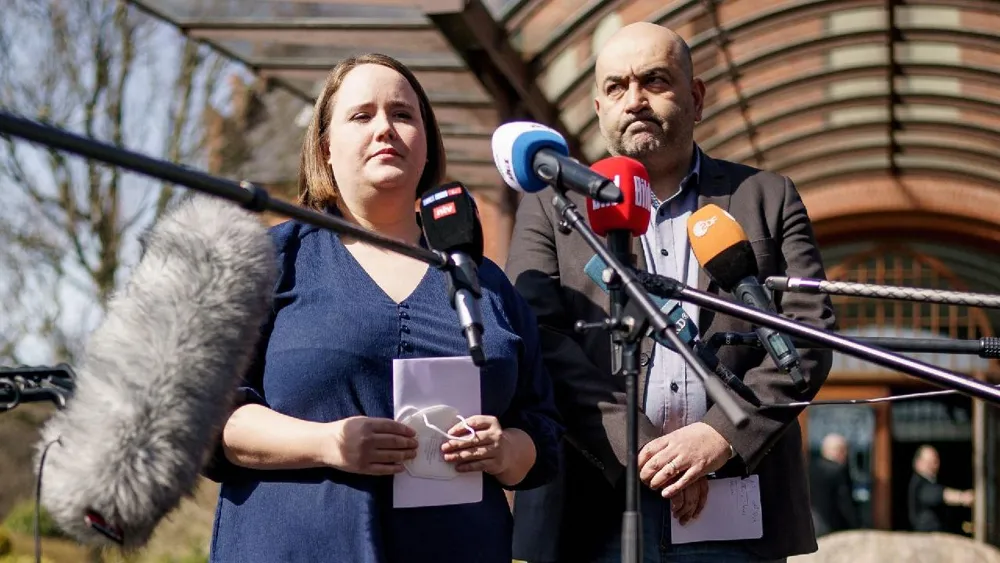Germany ruling party co-leaders resign amid ongoing crisis

Germany's Greens party has faced significant setbacks following poor electoral performances, prompting co-leaders Omid Nouripour and Ricarda Lang to announce their resignations. Their departure comes in the wake of the party's failure to secure seats in two regional parliaments, a development that underscores growing challenges within the current governing coalition.
Nouripour held a press conference where he articulated the gravity of the situation, stating, 'The result in Brandenburg on Sunday is a sign our party is in its deepest crisis for a decade.' He emphasized the necessity to entrust the party's future to new leadership.
The resignation arrives at a critical juncture for Chancellor Olaf Scholz's coalition government, which comprises the Social Democrats, the Greens, and the Free Democrats. This coalition has been rocked by mounting economic concerns and contentious debates over migration that have strained voter confidence.
The Greens' disappointing electoral outcomes included failing to surpass the five percent threshold required to gain parliamentary representation in Brandenburg and Thuringia. This marks a dramatic decline in the party's influence alongside its coalition partners, who have also experienced notable losses in their electoral support.
Reflecting on the shifting political landscape, Lang remarked on the need for the party to adapt to what she described as a 'dramatically changed political climate.' The emergence of a new left-wing populist party and the far-right Alternative for Germany has contributed to the Greens' decline, as they have outperformed the coalition parties in recent elections.
Lang also emphasized the significance of the impending national election next year, framing it as a choice between climate-focused governance and a return to conservative policies aimed at reversing progressive reforms. This upcoming election is characterized as pivotal for the country's future direction.
While Nouripour and Lang step down, the position of Robert Habeck, the Greens' senior member and Scholz's deputy, remains unaffected by the leadership change. His role as Germany's economy minister continues as the party navigates this transitional phase.
Katja Mast, parliamentary leader for the Social Democrats, expressed her belief that the resignation of the Greens' co-leaders does not herald a shift in government dynamics. She indicated that the changes reflect a reorganization within the party rather than alterations to the coalition's structure.
The Greens' upcoming congress in mid-November is anticipated to be pivotal in selecting new leadership. As the party charts its course amid these tumultuous times, the political implications of this leadership change and the strategies it will adopt remain a focal point of interest.
As Germany grapples with economic uncertainties and electoral challenges, the resignation of the Greens' co-leaders epitomizes the broader struggles faced by governing coalitions in navigating voter expectations and ideological divisions.
Read These Next

Apple Brings Back Blood Oxygen Monitoring
A critical commentary on Apple's return of the blood oxygen monitoring feature for the Apple Watch amidst patent disputes.

Nvidia and AMD's 15% Revenue Deal Impact on Semiconductor Trade
This article discusses the recent agreement between Nvidia and AMD to pay a portion of their revenues from China to the U.S. government, exploring its implications for global semiconductor trade and national security concerns.

ByteDance Seed Unveils VeOmni for Omni-Modal AI Training
ByteDance has launched the VeOmni framework for omni-modal AI training, significantly enhancing efficiency and accessibility for developers.
